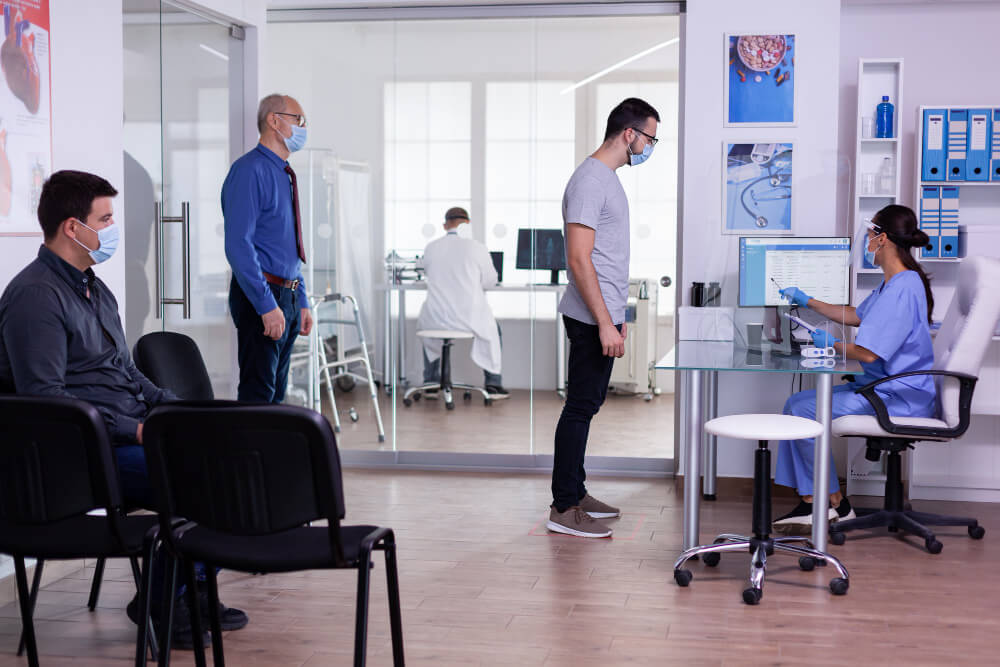Your Texas Healthcare Compass: Navigating Checkups, PCPs, and Walk-In Clinics
Maintaining good health in Texas, with its vibrant lifestyle and diverse landscapes, requires a proactive approach. Regular checkups and establishing a relationship with a primary care physician (PCP) are crucial for prevention, early detection of health issues, and overall well-being. However, life throws curveballs, and sometimes, unexpected illnesses or minor injuries arise. That’s where walk-in clinics come into play, offering convenient access to immediate care. This article equips you with the knowledge to navigate the Texas healthcare landscape, highlighting the importance of checkups, PCPs, and the role of walk-in clinics.
 The Power of Prevention: Why Regular Checkups Matter
The Power of Prevention: Why Regular Checkups Matter
General checkups, often referred to as annual physicals, are not just for the sick. They are a cornerstone of preventive healthcare, allowing your PCP to assess your overall health, identify potential risks, and personalize a care plan. Here’s why regular checkups are essential:
- Early Detection: Checkups allow your PCP to detect health problems like high blood pressure, diabetes, or certain cancers in their early stages, often before you experience symptoms. Early diagnosis often leads to better treatment outcomes and improved quality of life.
- Personalized Care: During a checkup, your PCP takes a comprehensive look at your health history, family history, lifestyle habits, and current medications. This information helps them tailor a preventive care plan specific to your needs.
- Vaccinations: Checkups are an excellent opportunity to ensure you’re up-to-date on essential vaccinations, protecting yourself and others from preventable diseases.
- Monitoring Chronic Conditions: For individuals with chronic conditions like diabetes or heart disease, regular checkups allow your PCP to monitor your health, adjust medications as needed, and manage complications.
What to Expect During a Checkup:
During a checkup, your PCP will likely:
- Review your medical history and family history
- Perform a physical examination, including checking your vital signs (blood pressure, heart rate, temperature) and evaluating your ears, nose, throat, and other systems.
- Discuss any health concerns you have
- Order blood tests or other diagnostic tests if needed
- Develop a personalized plan for preventive care, which may include recommendations for diet, exercise, and lifestyle modifications
Your Texas Healthcare Partner: The Role of a Primary Care Physician (PCP)
Having a PCP is like having a trusted guide on your Texas healthcare journey. Your PCP is a primary care doctor – often an internist or family physician – who gets to know you and your health history over time. This ongoing relationship offers several advantages:
- Continuity of Care: Your PCP becomes familiar with your unique health needs and preferences, ensuring a more holistic approach to your care.
- Personalized Prevention: Your PCP can develop preventive care strategies based on your specific risk factors and health goals.
- Streamlined Referrals: If you require care from a specialist, your PCP can provide referrals, ensuring a smooth transition within the healthcare system.
- Improved Communication: Having a central point of contact for your healthcare needs can improve communication and streamline coordination between various healthcare providers.
Finding the Right PCP in Texas:
When searching for a PCP in Texas, consider these factors:
- Location: Choose a PCP conveniently located to your home or workplace.
- Insurance Coverage: Ensure the PCP accepts your insurance plan.
- Specialty: Some PCPs specialize in areas like pediatrics, geriatrics, or women’s health. Choose one aligning with your needs.
- Patient Reviews: Read online reviews to get insights from other patients.
When to Consider a Walk-In Clinic:
Walk-in clinics, also known as urgent care centers, are a valuable resource for addressing non-emergency medical needs when your PCP’s office is closed or you cannot get an appointment quickly.
What Walk-In Clinics Can Treat:
Walk-in clinics are equipped to handle a variety of minor illnesses and injuries, including:
- Colds, flu, and other respiratory infections
- Minor cuts, scrapes, and burns
- Ear infections
- Urinary tract infections
- Allergies
- Insect bites and stings
- Minor eye infections
When to Seek Emergency Care vs. a Walk-In Clinic:
While walk-in clinics offer convenient care, it’s important to know when to seek emergency care. Call 911 or proceed to the nearest emergency room for life-threatening situations, including:
- Severe chest pain
- Difficulty breathing
- Sudden and severe pain
- Uncontrollable bleeding

